Founded by the intrepid social entrepreneur, Koh Seng Choon, Dignity Kitchen provides educational and employment opportunities in the food services industry to vulnerable people of all walks of life, including those with physical, intellectual and mental disabilities, ex-offenders, at-risk youth, victims of domestic violence, cancer and stroke survivors – essentially anyone and everyone who find themselves on the fringes of society.
I visit on a quiet Saturday and despite his busy schedule, Koh takes the time to give me a tour of the 6000 square feet food court – pride shines from his eyes as he introduces me to each and all of the stallholders.
Dignity Kitchen offers bespoke cashier training to the hearing- and visually-impaired – the cashier machines have Braille markings and stickers attached to them- , and provides height-adjusted countertops to create a more enabling work environment for wheelchair-bound ‘hawkerpreneurs’.
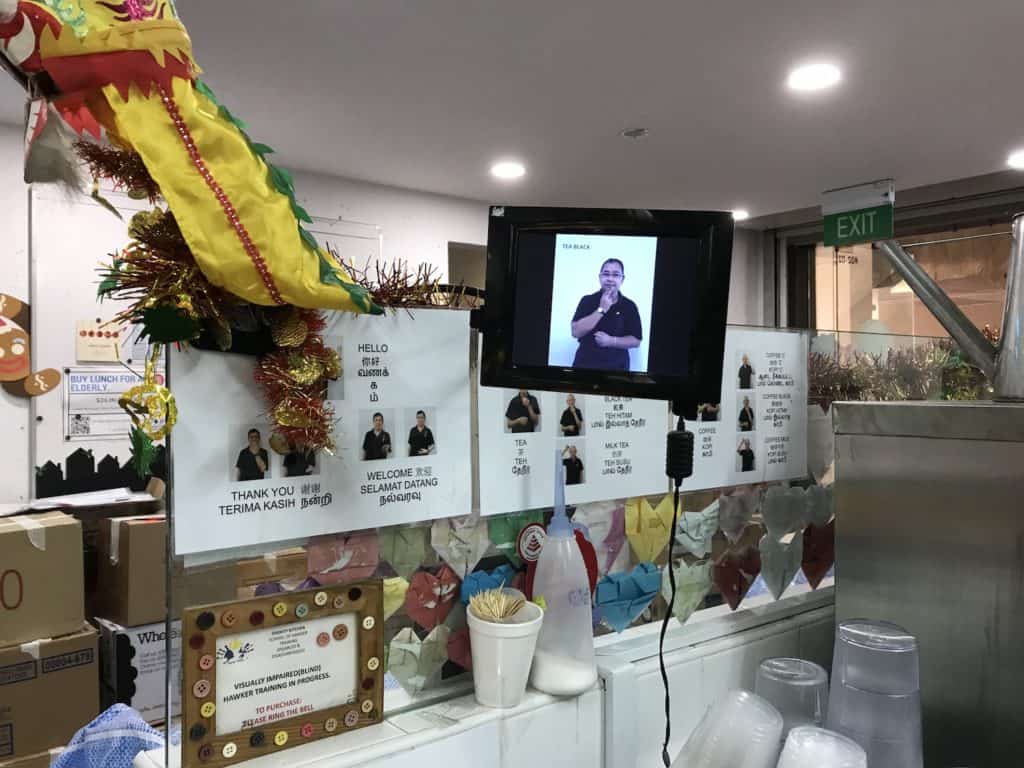
The social enterprise uses a noodle blanching machine catered for cerebral palsy patients with an automated timer, and a glass panel heater to keep the food warm, while eliminating the risk of their trainees accidentally burning themselves with the steam.
Foot traffic could be better in the second-floor food court– there are a few competing hawker centres within walking distance, though none has the same social mission as Dignity Kitchen.
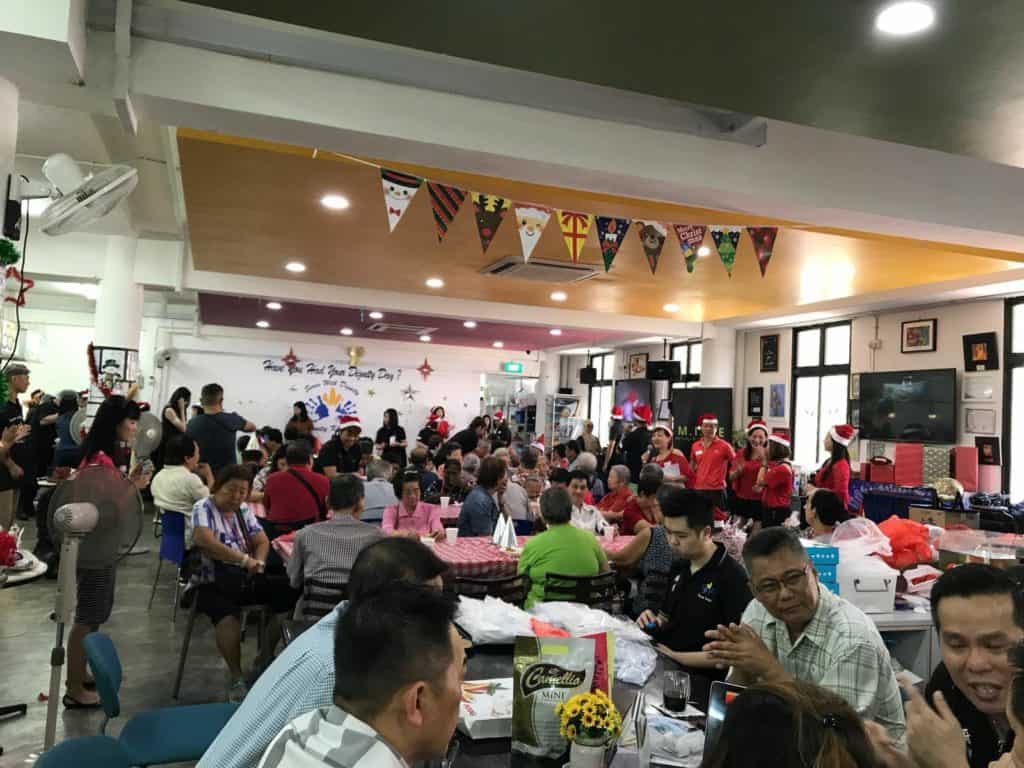
Weekdays are busier because of their Lunch Treat for the Elderly initiative, which encourages senior citizens to enjoy a free meal and city tour, and corporate team building activities such as the Hawker for the Day program. Hawker for the Day aims to raise awareness of the tough, but fulfilling working conditions in the food industry, and doubles up as an additional source of revenue for the social venture.
The Founder
With university degrees in engineering and computer integrated manufacturing under his belt, Koh’s career progressed steadily with work stints in China, Europe and the US. The son of a bus conductor and a seamstress, he has risen from a working class lifestyle to acquire all material signs of success – expensive watches, luxury cars and property.
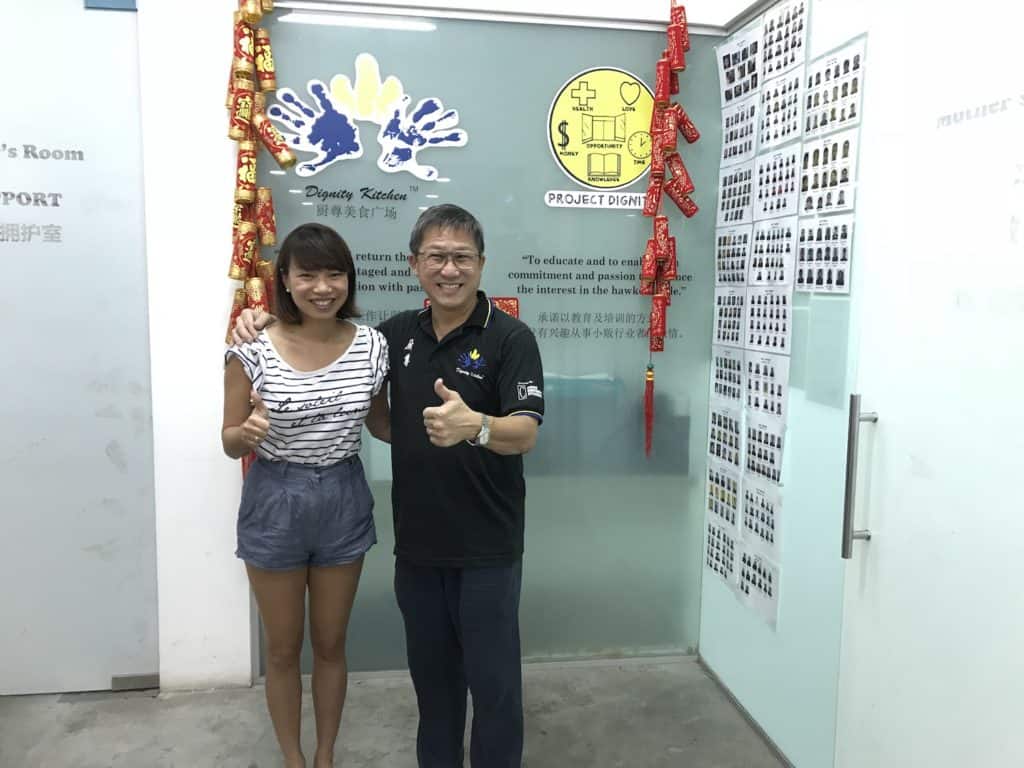
His humble beginnings and travels around the world were, however, a constant reminder of the vast inequalities in society, where happiness, he says, is often defined by material wealth and achievements. A deep understanding of these societal issues and an inherently entrepreneurial mindset were what compelled him to actively seek out sustainable ways to contribute back to his community.
It started with volunteering one day a month – taking the elderly on bus tours and teaching business skills to prison inmates to facilitate their reintegration into society.
He has soon recognized the need for more formalized education for those operating the main “pillars” of Singapore’s food scene, the hawker centres, and developed the first government-approved training center and curriculum in food court and food stall management. The program is the first of its kind to receive the ISO 22000 Standard for Food Safety Management.
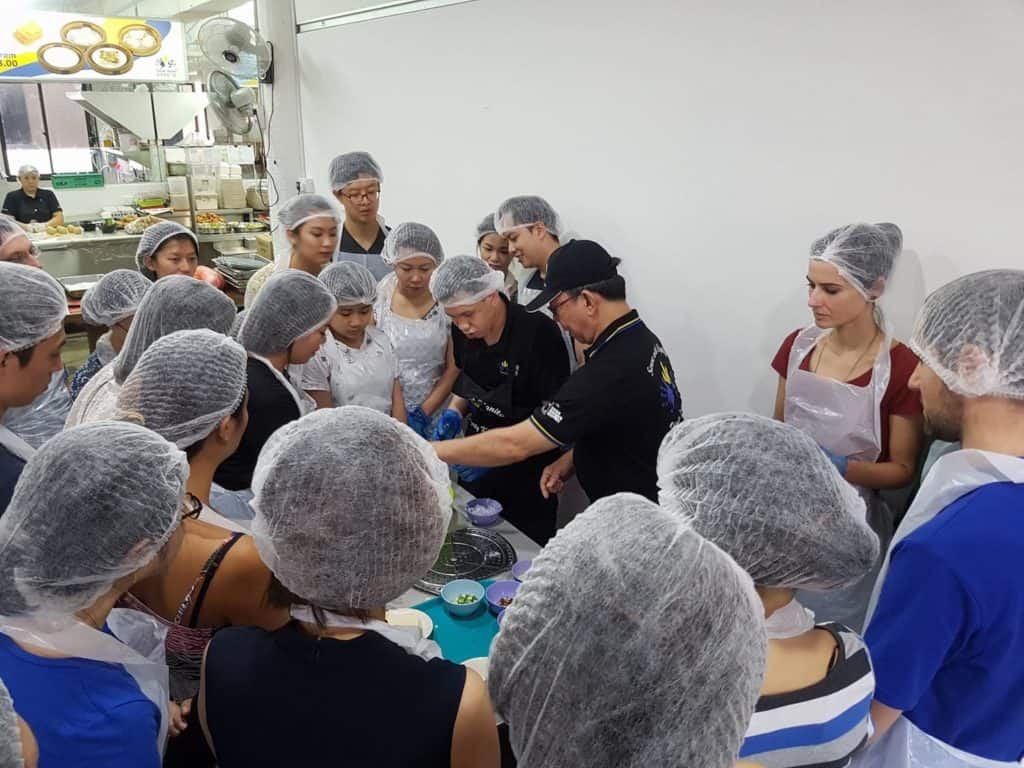
Koh wanted to create a commercially sustainable business that has a robust social mission, but does not rely on charity handouts to survive. While social purpose is at the core of his venture, every aspect of the operations is designed to create a sustainable business where all profits are reinvested into the social mission.
“We get the disabled people to cook, the poor people to eat, and the corporates to pay. It’s like Robin Hood.”
Running hawker centers – as compared to restaurants – require lower start-up capital and maintenance costs, and training people in food stall management helps address the current labor shortage in this space, upholding Singapore’s cultural heritage in the process.
The challenges
Yet at a time when the concept of social entrepreneurship was foreign to most, he struggled to raise initial funding. Dignity Kitchen qualified for neither grants targeted at charities, nor for seed funding provided by SPRING Singapore, a former government agency focused on small and medium sized enterprise development. He knocked on the doors of the Workforce Development Agency and the Ministry of Community, Sports and Youth Development to no avail.
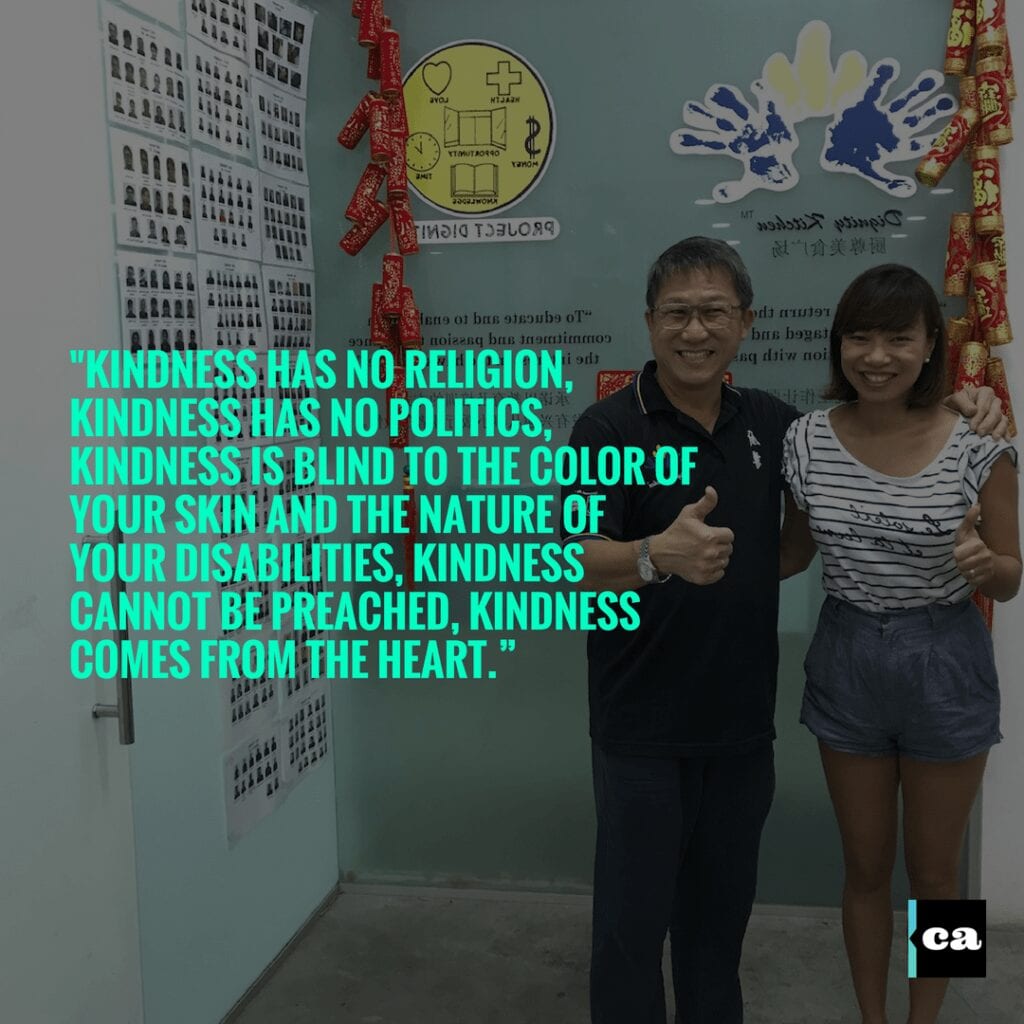
He eventually remortgaged his office to set up the social venture, took loans from friends – which he is still in the middle of paying back -, and resorted to using his inheritance from his mother.
In the seven years of its operation, Dignity Kichen had to change locations twice – high rental costs are a key challenge for most non-profits and social enterprises in Singapore, one of the world’s most expensive property market.
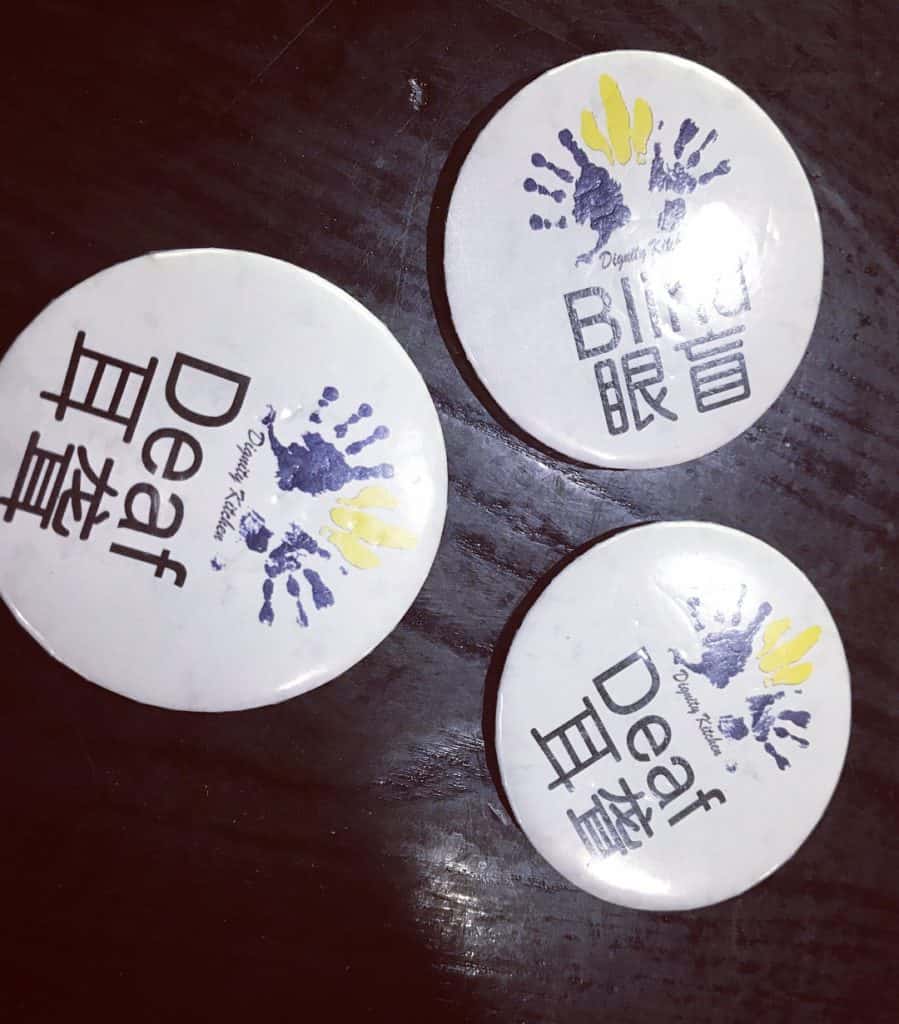
Yet Koh claims that rather than funding, it’s people’s perception and prejudice that has been his most daunting obstacle thus far. He used to encourage his team to wear badges with the words `blind’, `deaf’, `intellectual’ and `mental’ to raise awareness of their disability, but rather than inspiring compassion, it deterred people from visiting the food stalls. “You must be mental to let people with mental disabilities cook your food”, one visitor told him.
They have closed each day with zero revenue and a mountain of perfectly edible leftover food, and on day seven, he threw away the badges. Sales have eventually picked up and Dignity Kitchen started to generate profits in year three of its operations.
Related Post: From Tofu Wine To Surplus Bread, Singapore Embraces Fight Against Food Waste
Given the often uncertain nature of the sector, the social venture currently relies on multiple revenue streams: food sale and food delivery, training courses and curriculum development, team-building and educational events for schools and companies, the rental of the food court space for external functions and Koh’s own consultancy services to businesses expanding overseas.
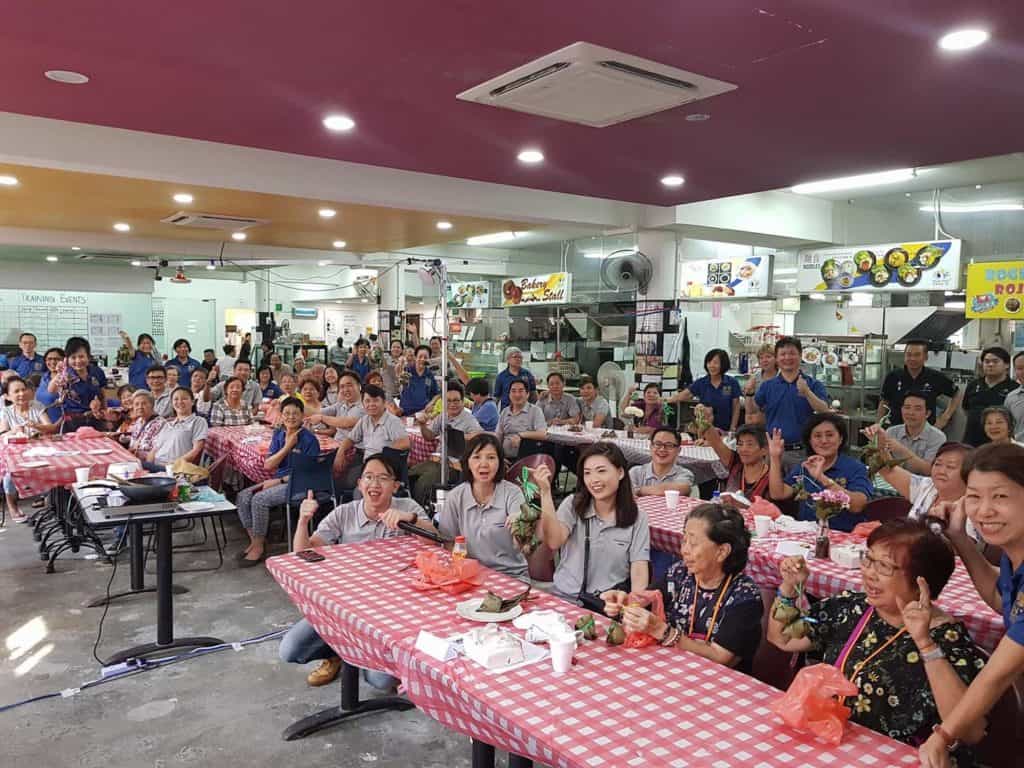
Koh aspires to build different avenues to self-sufficiency for marginalized youth and families. In addition to food services training, the social enterprise helps special needs children and their parents run retail kiosks selling second-hand books – the Dignity Mama stalls offer a source of livelihood for vulnerable communities, and empowers them to gain a sense of autonomy and accomplishment.
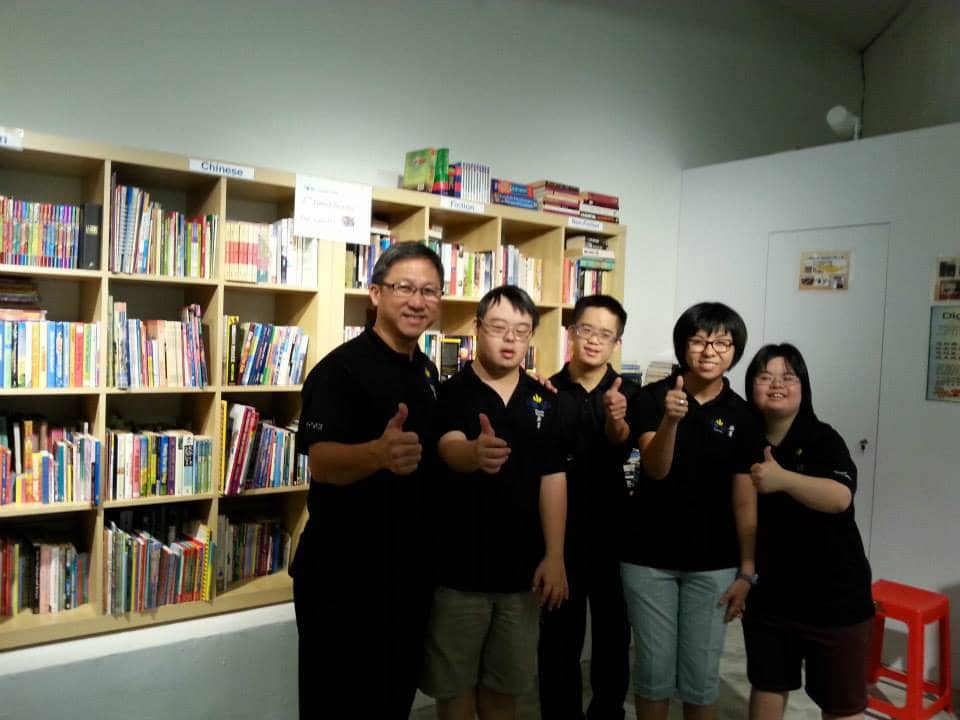
The social impact
Since opening in 2010, Dignity Kitchen has trained and successfully placed more than 500 mentally or physically challenged students, has seen more than 4,500 people graduate from its courses, and has incubated over 33 food stalls. The social enterprise has engaged over 52,000 elderly people through its lunch and outreach program, and has worked with over 100 schools to expose the young to Singapore’s underbelly.
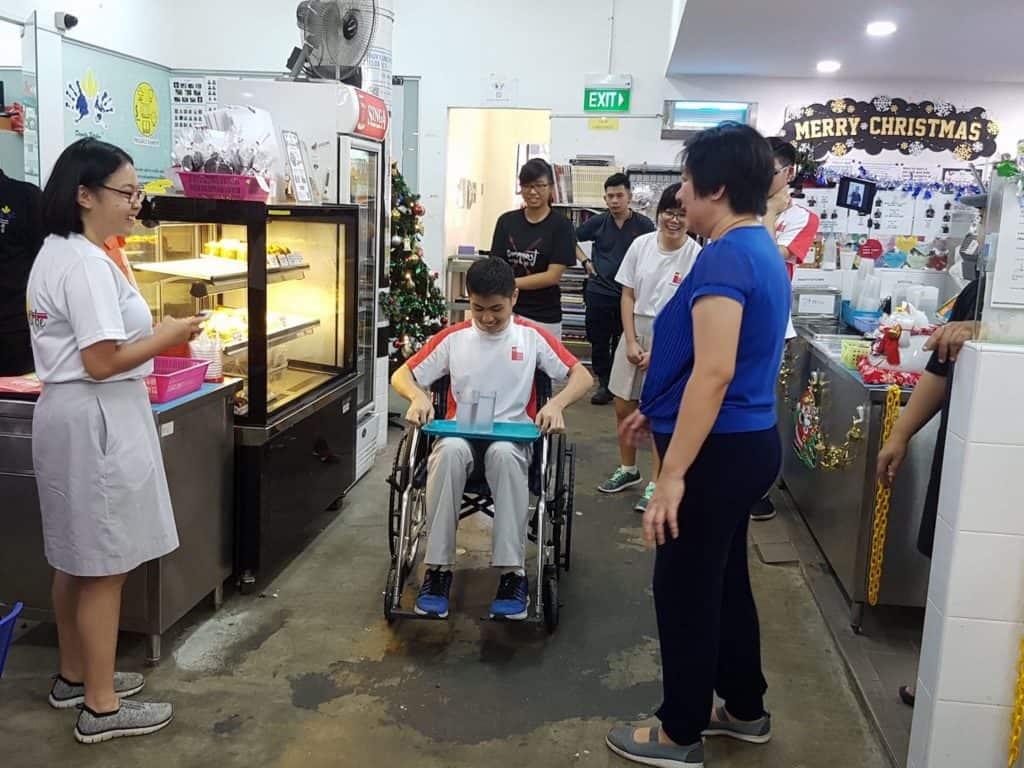
Based on an average S$1,000 monthly salary per trainee, Dignity Kitchen has delivered the equivalent of S$6 million in social impact in the last seven years.
The social venture prides itself on a 100% placement rate for its disabled trainees – graduates often go on to work in food stalls, cafes, restaurants and hotels, some have started their own hawker business, while those who can’t find work elsewhere are employed by Dignity Kitchen. Of the current 58 staff, 40 are mentally or physically challenged.
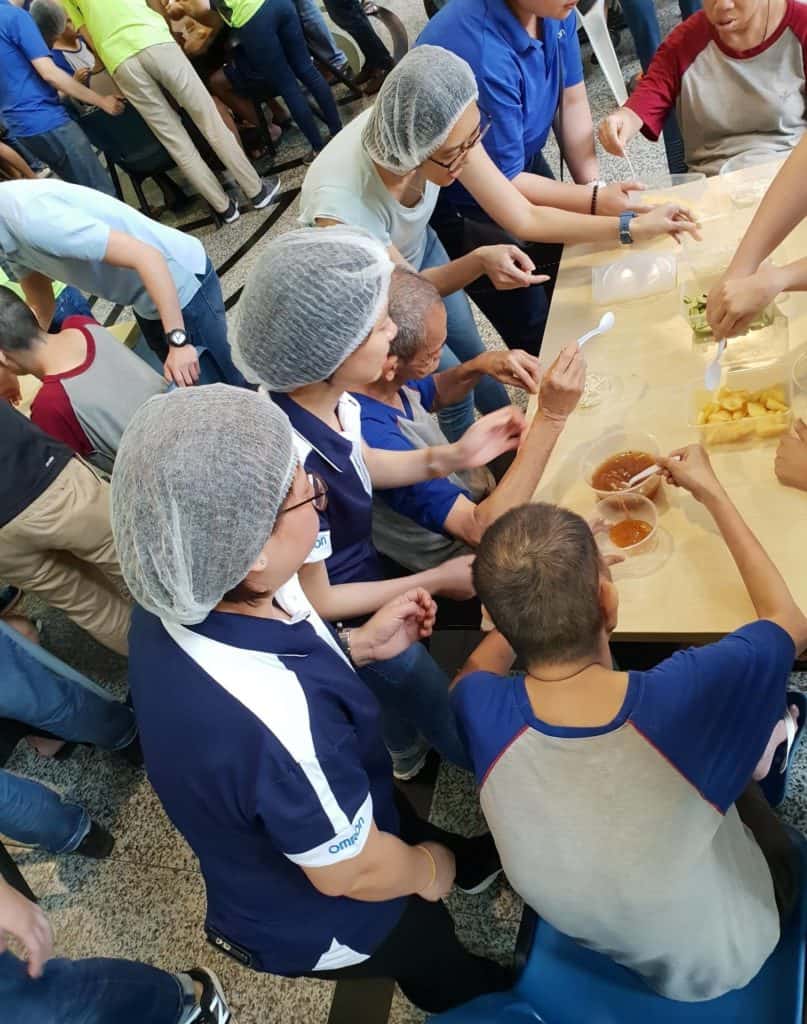
However, the ride has not always been smooth sailing – one of the autistic employees masturbates in public when he is upset, another cut her pubic hair and sent it around to everyone she knew. A trainee with severe eczema was turned away from a job he had already been accepted for because of his skin problem, and another establishment has refused to pay salary to their autistic trainee for an entire year.
While challenges continue to exist, Koh has made it his mission to focus on the good, and there are plenty of inspiring stories to tell: One of their trainees went from three suicide attempts to becoming a mental health counselor; Song Xian, suffering from cerebral palsy, works in a café as a cashier; Khai Liang, diagnosed with Russell Silver Syndrome, manages a kiosk in one of the local hospitals in Singapore; Chee Chong, physically and intellectually challenged, works as an ambulance support crew on top of caring for an ailing parent; Jian Ning and Shu Yi, both diagnosed with Down Syndrome, run a book stall; Lee Keng, a 60-year old deaf alumni, operates a bakery stall, and the list goes on.
The future
Koh envisions expanding the scope of the curriculum to train other vulnerable groups, such as the homeless, and hopes to replicate the social enterprise food court concept across the region. His ultimate goal is to implement the world’s first social enterprise IPO to add more transparency to his venture, and to attract more commercial funding to amplify his social impact.
“Project Dignity is about kindness, for kindness has no religion, kindness has no politics, kindness is blind to the color of your skin and the nature of your disabilities, kindness cannot be preached, kindness comes from the heart.”









